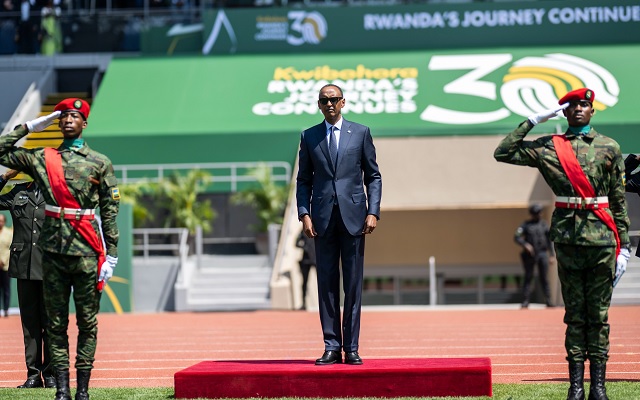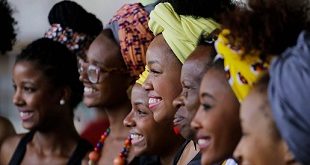
What the July 15 presidential elections tell us about how Rwandan citizens view President Kagame
THE LAST WORD | Andrew M. Mwenda | Yesterday Rwanda celebrated its 30th year since liberation. It has been an incredible journey. In 1994, no one gave this country a chance. The state had been dismembered, the economy destroyed, and society torn asunder by civil strife. Rwandans had turned on each other in an ogre of mass slaughter unknown to history: father killed daughter, husband killed wife, teacher killed student, worker killed employer, priest killed parishioner, doctor killed patient, friend killed friend, neighbour killed neighbour.
When RPF took over, the country had been emptied by extremists determined it should inherit a desolate land. The genocide against the Tutsi was popular and democratic and carried out on a scale and speed unimaginable.
I remember vividly how the greatest scholars, diplomats, statesmen and experts of the time said the Rwandan state could not be rebuilt, its economy could not be reconstructed, and its society could not be put together again. Everyone agreed that only a two-state solution for the Hutu and Tutsi could work. The RPF thought otherwise. They did not listen to “experts;” they listened to their hearts, aware of Rwanda’s history, of its communities as one nation, with one people, living in harmony.
The story of post-genocide Rwanda is a story of triumph and against all odds: it is a story of tenacity and fortitude, of forgiveness and kindness, of compromise and tolerance, of hard work and iron discipline, of openness and constant innovation; it is a story of the determination of Rwandans to shape their destiny. But most importantly, the story of post genocide Rwanda is a story of great leadership.
The RPF saw something that the world didn’t see, doesn’t see: that they are one people. They refused others to let others shape their view of them, to tell their story and shape the narrative about their country.
By all conventional measures, Rwanda is a geographically tiny, poor country with a small population. It is stuck in the hills of central Africa away from centers of world trade. Economically impoverished and geographically isolated, Rwanda by all predictions should be irrelevant and inconsequential in Africa and the world. Yet, its post genocide leadership has been blind to these realities. It refused to accept the fate geography had decided for it. Its post genocide leadership did not see fate but destiny. Despite the myriad disadvantages staring them in the eye, President Paul Kagame and his lieutenants in RPF saw something entirely different: a Rwanda that can be recognised on the world stage.
Thus, unencumbered by its geography, its GDP, its population size, etc. post genocide Rwanda stands tall today. Kagame could easily be the most recognised African leader on the world stage. This towering figure of a man has emerged as the leading statesman on our continent. In Africa, his peers have elected him to chair the AU, a position no leader of a small country in Africa would get? When the African Union sought to reform itself, it is Kagame that African presidents selected to do the job. And he did it with distinction. Today, tiny, poor Rwanda is a continental power. When Sudan needed help, Rwanda deployed in Darfur. When Mozambique was falling apart and could not get help from SADC, it turned to Rwanda. Mali has had Rwandan forces to keep the peace as has Central Africa Republic.
Even on the global stage, Kagame and Rwanda punch far above their weight. The influence of nations is based on their land mass, size of population and the economy and geostrategic location. Rwanda has none of these. Yet somehow Kagame has (to use an impolite word) literally smuggled Rwanda onto the world stage. So, you see the leaders of big powers like the USA, Russia, China, UK, France, India, Turkey, etc. visiting Rwanda. Who thought this was possible? At important international conferences, you see every major world leader meeting Kagame. At global sports events, Kagame is there. He is the most admired African leader with the Arab world, on first name basis with its presidents and kings. Rwanda joined the Commonwealth in 2007 and within 15 years hosted CHOGM, an honor many nations much larger, richer with bigger populations in this club have not had in 60 years of membership.
But it is not just world political leaders in awe of Rwanda and its president. World religious leaders, music icons and movie stars visit and want to associate with its president. Global titans of industry such as Bill Gates have been there. Elon Musk will visit this October. The world’s leading sports stars in soccer and basketball visit Rwanda and this year will play a soccer game opening the new Amahoro Stadium. Formula One is going to Rwanda. Leading academics want to visit Kigali and meet Kagame. The most dynamic Africans visiting Rwanda leave that country dazzled.
It is in this context that we need to understand the Rwandan presidential elections due to take place on July 15. If outsiders can see all this under Kagame’s leadership, what do Rwandans themselves see and feel? It is here that the global political commentariat backed by the human rights mujahedeen miss the point. Rwanda is studied and understood only by analogy. In most discussions, the western reality is the lens through which Rwanda is explained. Thus, the global commentariat say: “No leader of a Western democracy or any democracy gets more than 60% of the vote.” If Kagame gets 96% of the vote, it is because the election is a sham.
Well, Jacques Chirac of France got 82% in 2002 against the right-wing Marie Le Pen. The point I am making here is that context is important. It is not written in the stars that a leader cannot get 96% of the vote. In 1789, George Washington ran unopposed for the presidency of the USA under the newly written constitution and got 100% of the votes. This feat was repeated in the election of 1792 and Washington again won 100% of the vote. There were deep divisions in America at the time, but no one sought to challenge Washington because of his role in the struggle for independence, his stature and the integrity of his character. There were political differences, and these were manifest in the competition for the vice presidency. Rwandans see Kagame the same way Americans saw Washington – a figure bigger than life. It would not surprise anyone who knows Rwanda that under the most free and fair election, Kagame would get 99% of the vote.
 The Independent Uganda: You get the Truth we Pay the Price
The Independent Uganda: You get the Truth we Pay the Price




Andrew M9, there’s a Nigerian adage which goes like this: the size and height of any tree can only be measured when felled down!
Same applies to great statesmen in any field of humanity, including your insatiable obsession with president Paul Kagame of Rwandan!!!
For instance you cannot claim to be knowing Kagame better the likes of late Patrick Buregeya or Gen Kayumba Nyamwasa with whom he they stormed the jungles of Rwanda to bomb their way State House in Kigali.
No matter how nakedly you can write such paid for pieces painting Kagame as today’s world Saint will Never change his iron fist suppression of any desenting views in Rwanda.
Just over a decade ago you used to write scathing political commentaries including one in which you swore and betted $10,000 should Paul Kagame alter the constitution to remain in office beyond the two term limit of seven years but when he did exactly what his mentor Tibuhaburwa did in 2005 you were forced to follow your vomit.
So let’s wait for a decade from now if Kagame will be George Washington or Nelson Mandela of USA or South Africa respectfully, (these two remain world’s icons centuries/ decades in their distant graves )!
Otherwise even the blind can see your writings about both presidents Paul Kagame and Tibuhaburwa as pieces of a paid propagandist!!
Well said Uwelogosi. I disdain Ugandan who always think that Mwenda a propagandist ; admirer of dictators and terrorists ;an opportunists; a corrupt apologist; a political and economic pygmy is even an intellect to follow and take seriously.
Following Mwenda, makes one realise how Uganda is heading to serious political instability.